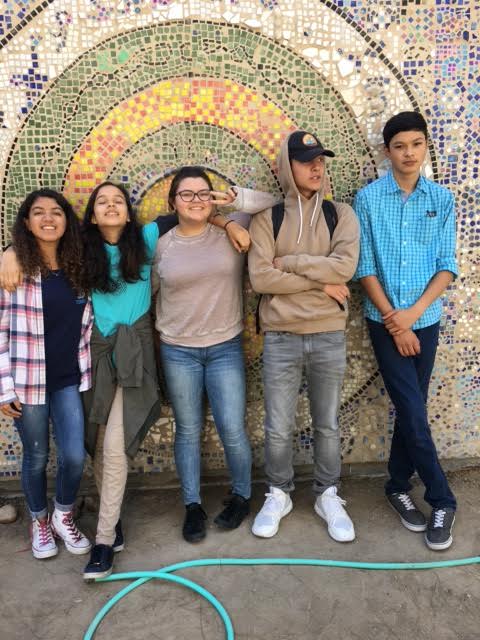Mad Props Project
November 9th, 2016
6:47pm
INTRODUCTION:
In November, California will give the citizens their right to vote on 16 different propositions, from school bonds to legalizing marijuana. We, as a team, started to research on what these propositions were, how they would take action and who they would affect. Throughout this project, we were told to be informed, even when we think we have enough research. It's always safe to find more and be more informed. This led to conducting various interviews, research, a lot of reaching out to our community and so forth. We, as students, are planning on changing family's point of views on how these various propositions can affect our community and California in general.
|
LEFT TO RIGHT: Ambahr Morales-Cuevas, Thalia Peralta, Ysabel Marquez, Jonah Karty and Alejandro Solano
ABOUT PROPOSITION 64:Proposition 64 will create a legalized environment where marijuana is allowed to be consumed, smoked and grown by adults 21 and older. They will be allowed to grow (and have) 3 plants of marijuana in their house. The money that this proposition will make will go to support youth programs, environmental protection and law enforcement. If this proposition were to pass, it would have the most strictest protection towards children as to what they see from the public.
WHAT OUR PODCAST IS ABOUT:Our podcast covers Proposition 64's side of revenue. We talk about what people need to know. Where is the money going? How is it being used? Are schools going to be funded? Where is the tax being imported to? How much will the marijuana be affecting the tax? How is it helping the community? What do I need to know? We answered all of these questions and some doubts that maybe you were having about Proposition 64 and how it could change California. For better, or for worse?
|
OUR GROUP'S PROCESS:
My group created and outlined a podcast by scratch, from which took many weeks to create. During our process, we first started researching about Proposition 64 and how it can affect California. The first step was to be as informed as possible. When we were able to gather as much information as we could, we started compiling a document where we typed up all out research and where we had found our information. From there, we were able to figure our where we wanted to go for our podcast. Finding potential interviewees was hard because as many people as we reached out to, only 2-3 people answered and told us they were either available or really busy. In total, we reached out to about 15 people, in hopes of finding someone to interview for our podcast and get good information about.
PODCAST PITCH/SCRIPT:
For our group, we had to make a script for our podcast so that we wouldn't go off track when recording our podcast. At first, making our script became challenging because we didn't know how to start it and how to make it sound natural without coming off as boring or too monotone. Our script actually took various times to be able to finish, since we had to piece each part together and add anything that was missing when we would be recording that we would notice. From there on, we also created an interview map and outline for the podcast. All of these because crucial to our process because our interview map would be used when we would be interviewing a guest, and our outline for the podcast would be used to create the script and give us a visual on what the podcast can look like.
INTERVIEW MAP/LOGGING TAPE:
When we worked on our Interview Map, we tried to shape it as best as we could to the person we were going to interview. So if the person were to be a worker in a Dispensary here in California, we would ask them questions about their work, what they do and how they think it would affect the Dispensary if California were to legalize Marijuana. The questions had to fit accordingly to what the person had a relation to in the marijuana industry. After we interviewed someone, we would record it and log the tape. "Logging" is when you write down everything the person said and everything that was relevant. It's a version of a script for the interview and we can then look back at exactly what she said in the interview or what he said in the interview. This really helped us because there were various times where we had to come back to the log to see how our interview had actually gone and what the person had said. We could then take notes from the log and apply it to whatever we were working on and how we would shape our podcast in a different way than how we had planned in the first place.
ROLAND SHAW INTERVIEW:
Your browser does not support viewing this document. Click here to download the document.
EXHIBITION REFLECTION:
Exhibition was really fun because we got the chance to showcase our podcast for our families to hear and know about what the podcast was about. We were able to teach the audience about each proposition and it's pro's and con's of voting for one proposition. I felt excited to present, even though I wasn't able to answer any questions during exhibition due to my group taking over. But, I hope in the next project, everyone let's other's talk and spread around the question to other group mates.

